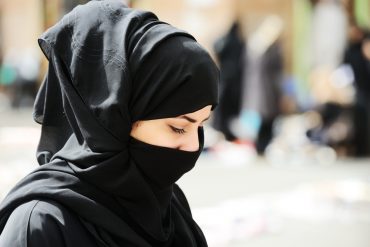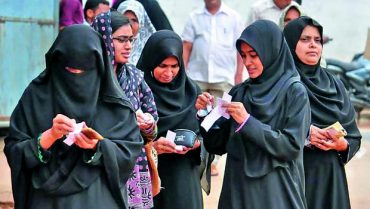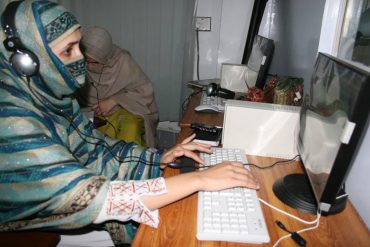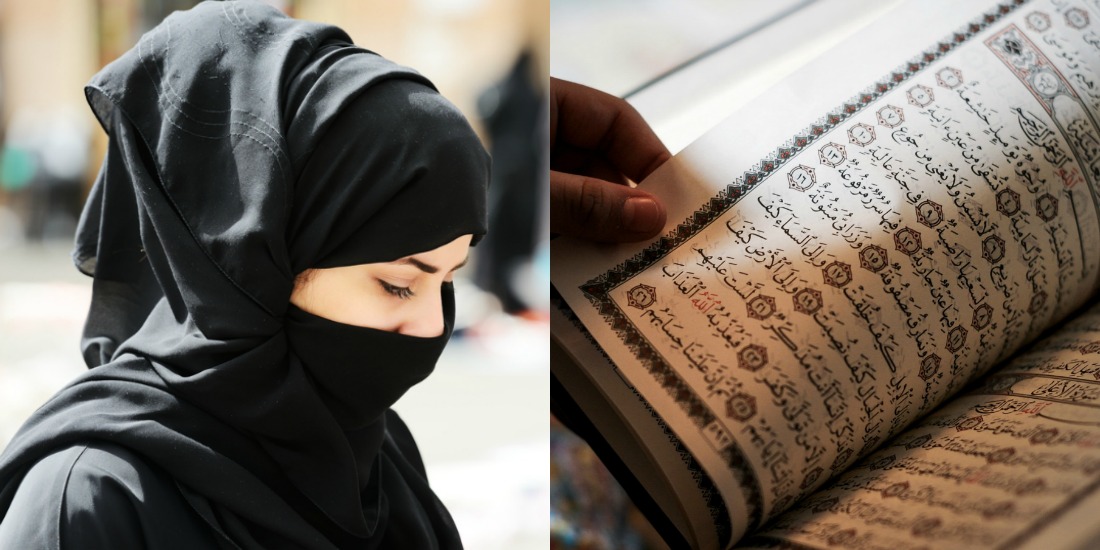Whenever we have talked about the rights of women in Islam and different attributes and entities related to it, a majority of men have countered the knowledge with “Why don’t you tell us about XYZ?” Something that counterfeits how women should act and remain steadfast as per Islam’s teachings. Purdah and a dress code for women have always been topics fit for a debate.
[adinserter block =”3″]
The sort of purdah Muslims observe is different in every country and community. To know the Quranic and Islamic position on purdah and dress code is very important. The Holy Quran’s Arabic verses do not refer the purdah as Hijab, but calls it veil. What the Quran states is that women do not display their Zeena (chains, adornments, accessories) in open public, as referred to in verse 2431.

Source: shutterstock.com
The literal meaning of Hijab is to cover or hide. Since Islam is a religion that is concerned with community and moral boundaries, the relation and outlook between women and unrelated men have been given a lot of respect. Thus, to veil and to hijab is more than just a dress code for women.
This is what the Holy Quran says about purdah and a proper dress code

Source: vice.com
[7:26] “O children of Adam, we have provided you with garments to cover your bodies, as well as for luxury. But the best garment is the garment of righteousness. These are some of God’s signs, that they may take heed.”
[24:31] “And tell the believing women to subdue their eyes, and maintain their chastity. They shall not reveal any parts of their bodies, except that which is necessary. They shall cover their chests, (with their Khimar) and shall not relax this code in the presence of other than their husbands, their fathers, the fathers of their husbands, their sons, the sons of their husbands, their brothers, the sons of their brothers, the sons of their sisters, other women, the male servants or employees whose sexual drive has been nullified, or the children who have not reached puberty. They shall not strike their feet when they walk in order to shake and reveal certain details of their bodies. All of you shall repent to God, O you believers, that you may succeed.”

Source: deccanchronicles.com
A translation of the same verse, according to renowned scholar Yousuf Ali, the word “Khimar” was put back in place instead of (veils), so the verse would look as it should have – “And say to the believing women that they should lower their gaze and guard their modesty; that they should not display their beauty and ornaments ……. . . that they should draw their KHIMAR over their bosoms and not display their beauty except to their husbands……….”
[24:31] “They shall not reveal any parts of their bodies, except that which is necessary…”
[33:59] “O prophet, tell your wives, your daughters, and the wives of the believers that they shall LENGTHEN their garments. Thus, they will be recognized and avoid being insulted. God is Forgiver, Most Merciful.”

Source: wunrn.com
[33:55] “The women may relax (their dress code) around their fathers, their sons, their brothers, the sons of their brothers, the sons of their sisters, the other women, and their (female) servants. They shall reverence God. God witnesses all things.”
[24:60] “The elderly women who do not expect to get married commit nothing wrong by relaxing their dress code, provided they do not reveal too much of their bodies. To maintain modesty is better for them. God is Hearer, Knower.”
[adinserter block =”3″]
Thus, it can be rightly said, according to what the Holy Quran teaches us, that purdah and a proper dress code for women is very important in Islam. Muslim women must follow this code of conduct in order to stay righteous and within the boundaries set up by our religion. The three rules that are set around it are dressing with righteousness, covering up of the bossoms and lengthening of the garnments, all that along with staying a distant from unrelated men.







